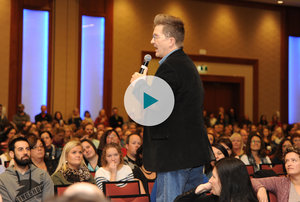Strengthening Student-Teacher Relationships Through Funny Motivational Speeches
In the realm of education, establishing strong relationships between students and teachers is crucial for a positive and productive learning environment. While traditional approaches focus on strict discipline and authoritative teaching, incorporating humor and funny motivational speeches for students can be a game-changer.
By leveraging the power of laughter, teachers can build bridges that connect with their students on a deeper level, fostering mutual respect and engagement and, ultimately, enhancing the educational experience.
1. The Impact of Humor in the Classroom:
Humor has the remarkable ability to break down barriers and create a more relaxed and welcoming atmosphere. When teachers infuse their lessons with humor, students are more likely to be engaged and enthusiastic about learning. Laughter can act as a catalyst, promoting open communication and encouraging students to actively participate in classroom discussions.
2. The Role of Funny Motivational Speeches:
Funny motivational speeches for students serve as valuable tools for teachers to inspire and motivate their students. These speeches combine humor and motivation to deliver important messages in an engaging and memorable way. By using relatable anecdotes, funny stories, and humorous examples, teachers can captivate their students' attention, making the learning process enjoyable and effective.
3. Breaking Down Barriers:
Humor has the power to break down the invisible barriers that often exist between students and teachers. When students perceive their teachers as approachable and relatable, they are more likely to seek guidance and support. Funny motivational speeches create a shared experience, fostering a sense of unity and trust among students and their teachers.
4. Fostering Positive Teacher-Student Relationships:
Establishing positive teacher-student relationships is crucial for academic success and personal growth. Funny motivational speeches for students provide an opportunity for teachers to connect with their students on an emotional level, creating a bond that goes beyond the traditional teacher-student dynamic. When students feel seen, understood, and valued, they are more motivated to excel academically and engage actively in the learning process.
5. Enhancing Student Engagement:
Engagement is a key factor in effective learning. When students are actively engaged, they are more likely to retain information and apply it to real-life situations. Funny motivational speeches capture students' attention and make complex topics more accessible and relatable. By infusing humor into their teaching, teachers can create a positive and stimulating environment that encourages student participation and active learning.
6. Creating a Positive Classroom Culture:
Positive classroom culture is essential for fostering collaboration, respect, and a sense of belonging among students. Funny motivational speeches contribute to creating a classroom environment where students feel safe to express themselves, take risks, and learn from their mistakes. Laughter can act as a unifying force, strengthening the bonds between students and promoting a supportive and inclusive classroom community.
Conclusion:
Integrating humor and funny motivational speeches into the educational landscape has the potential to revolutionize the student-teacher relationship. By using laughter as a bridge, teachers can connect with their students on a deeper level, fostering trust, engagement, and a positive classroom culture. The power of humor should not be underestimated—it has the ability to transform learning experiences, making education an enjoyable and transformative journey for both students and teachers alike.


Comments
Post a Comment